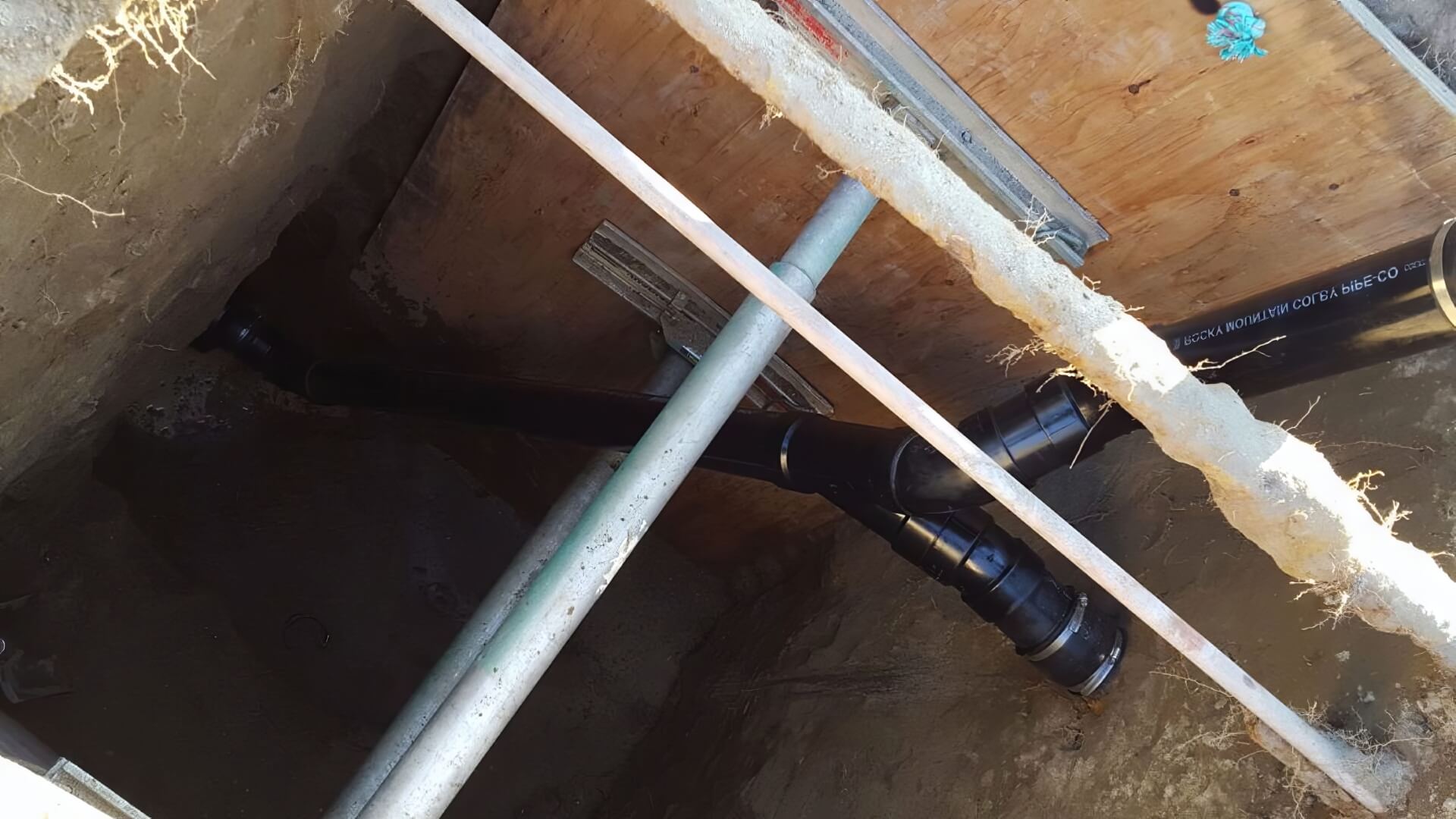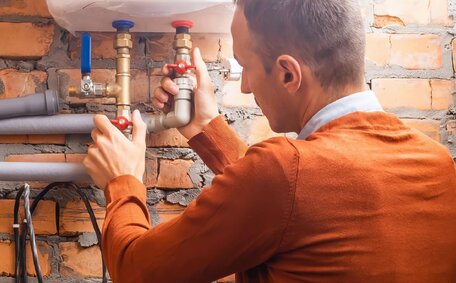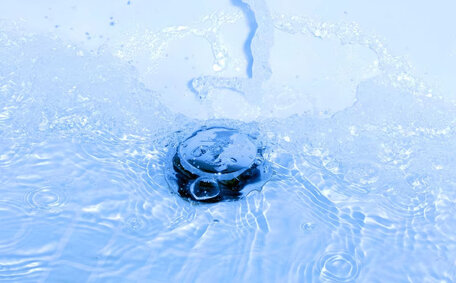Introduction to Pipe Relining Materials and Quality Standards
Adopting pipe relining can provide an expert resolution for restoring pipes, considerably reducing the need dig into your property. It often involves incorporating an epoxy resin liner into pipe, hence fixing broken pipes to establish robust new pipes within the existing framework. Using high-quality relining materials, pipe relining restores old pipes competently, circumventing extensive excavation and pre-empting future complications.
There are two key facts to understand about relined pipes:
- Once the relining is completed inside old drains, there’s little to worry about as most repair needs are significantly mitigated for years on end.
- Pipe relining brings solace to our clients by sparing them the cost and disruption of digging up gardens, an often onerous homeowner burden.
At our company, the high-grade epoxy resin we use and our meticulous fitting techniques ensure a flawless installation within your existing pipes, without need for excavation. While inferior materials may lead to damaged pipes and subsequent complications, our superior relining substances are designed to avert leaks and ensure resilience. Call us for top-notch products that not only repair but ensure leaks prevent, meeting stringent quality benchmarks for stellar outcomes.
This guide will help homeowners understand the process, how pipe relining works, what they need to know, encompassing methods to thwart leaks and maintain impeccable plumbing standards.
Identifying High-Quality Pipe Relining Materials
When it’s time, using pipe relining techniques becomes a method that employs numerous materials affecting the robustness and efficiency in water waste management:
- Epoxy resins - The type of epoxy used and proper curing are critical for how effectively relining can fortify the pipe’s structure. 100% solids epoxy resins are higher quality than lower percentage epoxy blends.
- Polyester resins - More affordable but less durable option. Should meet minimum styrene levels and glass reinforcement standards.
- Cement mortars - Employed notably in storm water pipes and sewer relining for wider diameter channels. Need proper compressive strength and acid resistance levels.
The reliability of your pipes, sewer line especially, hinges on selecting quality materials for the plumbing works:
- Invoice check - Reputable companies list the exact relining products used, which can be cross-checked.
- Sample analysis - Materials can be mechanically tested for properties like tensile strength.
- Visual inspection - Properly cured resins should not show cracks, detachment, or deficiencies.
Organisations such as ASTM International set benchmarks ensuring your sewer pipe relining maintains essential integrity for both potable water and sewage systems. Ask questions of contractors to ensure standards are met and quality is prioritised for long-lasting pipes.
What Certifications to Look For
When researching pipe relining companies, homeowners should ensure your pipes need are compatible with the company’s certifications for quality materials and proper installation:
- NASSCO Pipeline Assessment Certification Programme (PACP) - This certification can help confirm expertise in sewer pipe inspections.
- ASTM International standards - Globally recognised specifications for relining products that are essential for maintaining your sewer lines.
- APCA Australian Pipe Relining Association - Trade association endorsement.
- WorkCover licences - Certifies training in safe handling of relining materials.
Reputable companies display their industry credentials openly, enabling customers to pipeslearn more about their qualifications. Don’t hesitate to ask questions about specific products used and their compliance to quality benchmarks.
Traceable certification for both materials and installers provides assurance to homeowners that relining work meets high standards for long-term performance, encouraging them to find out more about the process.
Manufacturer Specifications
Manufacturer details are pivotal for your pipe relining, clarifying product composition, usage, expected lifespan, and how it meshes with your piping. Homeowners can also review these to ensure they are getting the best pipe relining quality standards.
Specifications for pipe repair typically cover how pipes can be rehabilitated:
- Material composition - Exact epoxy blends and percentages, reinforcements used, etc.
- Curing methodology - Temperature, timing, environmental controls.
- Pressure thresholds - Maximum pressure handling capability.
- Chemical resistance - Performance when exposed to effluents or soils.
- Expected lifespan - Durability projections under standard conditions.
Comprehensive documentation ensures your relining process caters to your sewer pipes efficiently, accommodating various materials like cast iron, PVC, concrete, or terracotta.
Spec checklists also detail the ideal pipe conditions for the installation process. This helps determine if supplementary repairs are needed first. Assuming the material complies with industry benchmarks like those established by ASTM International, we would promptly affirm the product’s calibre.
Evaluating Relining Company Credentials
When selecting a company for pipe relining, homeowners should research their credentials to ensure quality standards are met.
Crucial points to assess encompass the various benefits pipe relining introduces to the comprehensive plumbing network:
- Industry experience - An established company with years of specialisation in pipe relining is preferred.
- Customer reviews - Check independent sites like ProductReview for feedback on service and workmanship.
- Certifications - Well-credentialed companies display industry badges like PACP, APCA, ASTM standards, etc.
- Compliance - Licenced and insured businesses indicate professionalism and safety diligence.
- Materials used - Reputable companies openly share information on reputable brand relining products chosen for durability.
- Warranties - Multi-year warranties on labour and materials show confidence in service quality.
Scrutinising credentials gives homeowners confidence they are partnering with an experienced, compliant and endorsed pipe relining specialist for long-lasting results.
Checking Licenses and Certifications
When hiring your plumber to carry out pipe relining services, it is important for homeowners to check that the individual has the proper licences and certifications for work in their local area.
In Australia, new legislative requirements dictate that solely licensed professionals engage in pipe relining, aligning with up-to-date legal benchmarks. There are state and territory licences for residential plumbing work, as well as additional licences for advanced services like relining.
For professional drain relining services, customers in regions like New Zealand should ensure the following minimum licences are verified:
- NSW Plumbing Licence issued by Fair Trading NSW
- Confined Space Entry Certification
- Hazardous Chemicals Handling Certification
With these credentials, homeowners can rest assured that the professionals servicing their plumbing are well-qualified, adept, and legally sanctioned to perform long-lasting pipe relining work safely. Reputable companies will always come out with certification details openly provided.
When vetting any plumbing service, checking licences protects homeowners and ensures that only trained specialists work on critical plumbing infrastructure. This gives peace of mind that quality and compliance standards will be maintained.
Comparing Warranties on Materials and Work
When evaluating pipe relining companies, homeowners should pay close attention to the warranties offered on materials and workmanship.
Reputable companies offering to fix your plumbing will provide multi-year warranties that cover important aspects of your plumbing system, instilling confidence in their service:
- The epoxy resins and other relining materials used
- The quality of the installation and curing process
- Labour and workmanship defects
- Potential detachment, seepages, or fissures in your relined pipes
Evaluating warranty protections among workers can offer insights, allowing customers to get your assurance regarding the contractors’ confidence in their pipe repairs and their accountability for post-job clean up.
Look for warranties that extend at least 2-5 years on materials and 1-2 years on labour to ensure the longevity of your plumbing. Lengthy warranties indicate durability and reliability.
Scrutinising warranties helps confirm that industry best practises will be followed for long-lasting pipe replacement and relining results.
Understanding Industry Standards for Pipe Relining
There are various industry standards pertinent to materials and methods, which, when adhered to, ensure the safety, quality, and longevity of pipe relining work; these standards are then used to benchmark procedures globally.
Key standards include:
- ASTM F1216 - Sets strict specifications for properties of cured-in-place pipe (CIPP) liners used in trenchless rehabilitation of pipes.
- ASTM F1743 - Outlines required practises for rehabilitating existing pipelines via CIPP relining.
- NASSCO PACP - Certifies expertise in sewer pipe condition assessment before relining.
- APCA Code of Practise - Guidelines from Australian Pipe Relining Association on safe operating procedures.
Compliance to these codes and standards indicates contractors follow best practises in preparation, product selection, installation methodologies, testing, and curing to deliver long-lasting, quality pipe relining outcomes.
It’s key for homeowners to confirm that pipe relining companies maintain up-to-date qualifications, ensuring professional and reliable remediation of failing pipes.
Pipe Materials and Relining Processes
There are several key materials used in pipe relining:
- Epoxy resins - The main lining material, it comes as a felt tube soaked with epoxy that cures to form a smooth, durable pipe lining able to withstand pressure and corrosion.
- Polyester resins - A lighter and cheaper resin option but less strong than epoxy. Mainly used for repairing lateral connections.
- Cement mortars - Applied by hand and used to reline large pipes that handle potable water and effluents.
The characteristic procedure of relining your sewer system entails:
- Inspection - How long does pipe inspection take? A drain camera swiftly assesses the condition of your drain, confirming the liner’s proper fit within existing structures.
- Drain cleaning - The original pipe had been scrubbed and prepared for relining to clear away blockages and ensure quality adherence for blocked pipes.
- Resin impregnation - The resin-saturated liner is expertly inserted into place within the pipe systems.
- Pipe cure - Lining materials expand and harden to form the new internal pipe surface.
- Final testing - Confirms restored structural integrity and flow.
You can rely on our team for biennial inspections to assure the enduring integrity and performance of your relined pipes. Any issues with detachment, cracks, leaks or obstacles can then be identified and fixed promptly to maximise longevity.
Quality Benchmarking
To evaluate if pipe relining materials meet quality benchmarks, homeowners can request tests like differential scanning calorimetry (DSC). This procedure scrutinises the mechanical attributes of product exemplars, gauging robustness, hardiness, and the efficacy of curing pipes without detriment.
Key benchmarks to examine include the pipe’s resistance to obstructions, such as tree roots, and the extent of damage that can be prevented, saving you significant trouble over time:
- Minimum 95% cure rate for epoxy resins
- Tensile strength exceeding 10,000 psi
- Flexural modulus above 500,000 psi
- Barcol hardness rating over 90%
Meeting these and other ASTM International specifications indicates excellent material integrity. With the pairing of a NASSCO-certified professional laying, householders can be assured their relining solution is of high-calibre and can last through numerous seasons.
Keys to Long-Lasting Pipe Relining Projects
There are several critical factors that contribute to effective, long-lasting pipe relining projects:
- Installer expertise - Pipe relining is a skilled trade. Choose a company employing professionally-licenced plumbers with extensive training and experience in epoxy resin application.
- High-grade materials - 100% solids epoxy resins meeting ASTM longevity and strength specifications will ensure durability.
- Compliant processes - Strict adherence to industry standards for preparation, installation methodologies and curing procedures is vital.
- Custom solutions - The best materials and processes for your project depend on pipe size, configuration and damage. Reputable companies provide recommendations tailored to your situation.
- Pre and post assessments - Inspections using drain cameras before and after relining provide insight on repairs needed and help confirm quality.
With decades of real-world installations, we make sure properly relined pipes have proven to serve homeowners reliably over time. Partnering with an experienced, endorsed contractor committed to tailoring solutions and using only superior grade, standards-approved materials gives pipes the best chance of lasting over 50 years.
Attend to minor issues promptly and get pipes re-inspected every 5 years. This properly safeguards your investment in trenchless pipe remediation, making it a set-and-forget plumbing solution for your home.
Proper Installation Methods
Comprehending your pipe relining process fully is essential to secure lasting, effective pipe rehabilitation results. Industry best practises include:
- Thorough cleaning and priming of the existing conduit surface are pivotal in the relining procedure to prevent any incidents that could damage your drainage system.
- Strict adherence to manufacturer specifications for resin saturation methods and curing times and temperatures.
- Use of manufacturer-approved tools and techniques to evenly distribute lining material and remove air pockets.
- Conducting confirmatory video inspections before and after relining to validate repairs.
- Testing for proper bonding and structural integrity with air, water and vacuum testing methods.
Meticulous installation procedures allow the epoxy resin to fully cure and bond correctly to form a seamless new pipe. This prevents future issues like cracking or detachment. Homeowners should validate installers follow all guidelines for long-term pipe performance.
Use of Premium Materials
Using top-tier pipe relining products is critical for durable, long-lasting repairs. Premium epoxy resins with 100% solids meet stringent ASTM specifications for composition, strength, curing effectiveness and corrosion resistance. Coupled with fibre reinforcements, these form a robust barrier coating.
While the initial overall cost for premium relining might be higher, it bypasses excavation chaos and ensures superior long-term performance. Industry data shows properly installed, premium relining solutions easily outlast lower-grade products by over a decade, thereby ensuring the longevity of your pipes.
This makes premium relining much more cost-effective in the long run compared to recurring repairs needed with cheap materials. Homeowners benefit from lasting peace of mind, avoiding excavation costs down the track when inferior relining fails prematurely. Insist on top-quality branded resins and professional installation for a 50+ year plumbing lifecycle.






